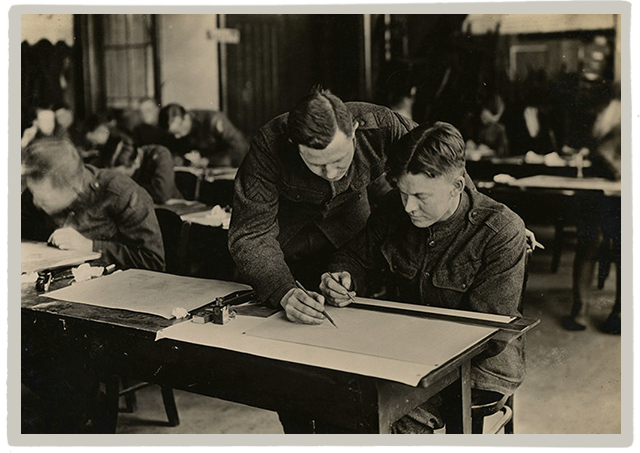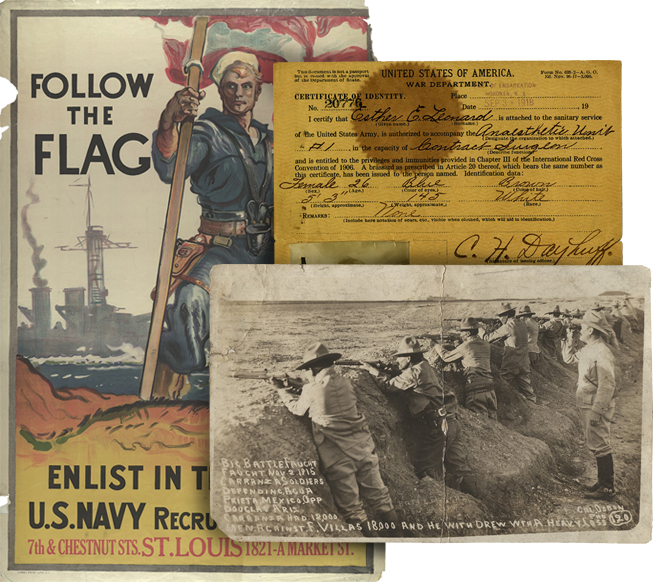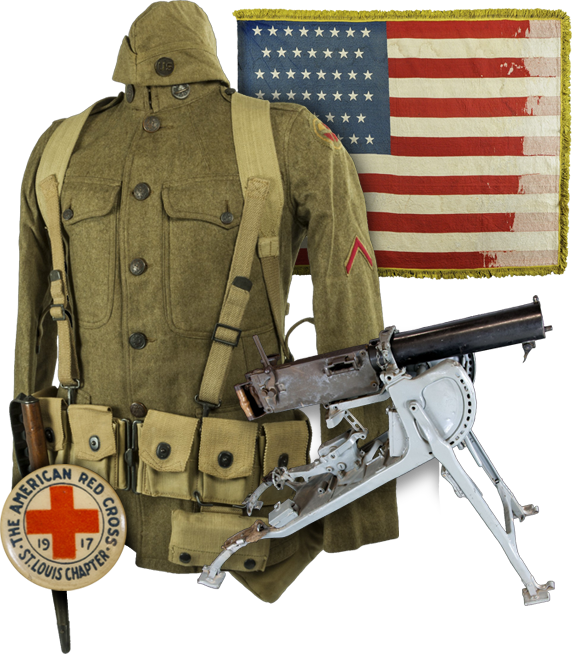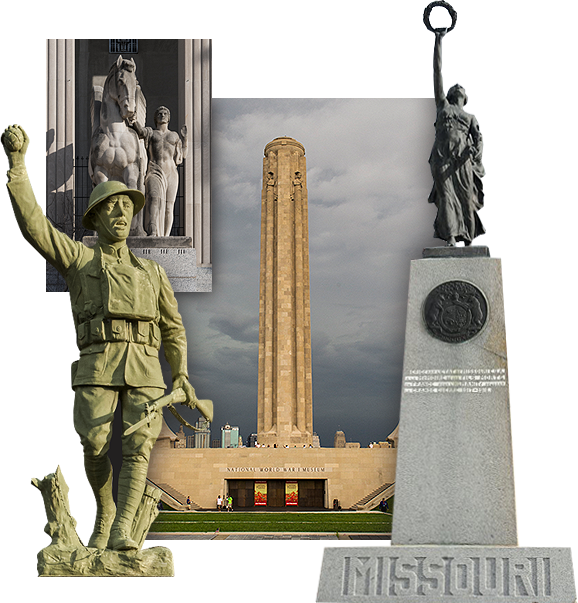Recollections of Adolph J. Schliesser - ca. 1957

Transcript
SCHLIESSER. My father

Transcript
[page 2] After a few hours, we proceeded. Soon we were at Battle Field Station, disembarked, and marched to our place, to clear the ground, pitch tents, and make ourselves as comfortable as possible, without food. We had no food that day, nor the next. The third day toward evening some came. The fourth day regular camp life started. Fourth of July some one must have poisoned our food, for the morning of the fifth, we were too sick to get up. We were lying on our backs, mouths open, vomiting, flies running in and out. I was one of the very few who was not sick. I must not have eaten the poison food. This was God

Transcript
[page 3] westward. I went to Engel

Transcript
[page 4] Now lets retrospect: When I was a vicar in Bonanza, Arkinsas, some girls, when they saw me, would sing:

Transcript
[page 5] Now, something about my wife: About a hundred years ago, Herman Brune and Charlotte Mullenbrok, Westfalan, Germany, were married. Then they came to this country, and settled in Jacksonville, Illinois. They had Ten children. The seventh last was named Alice Charlotte. She passed high through all the schools of Jacksonville. She was always the best in her classes. She has a photographic mind. When 22 years old, she was married to the Rev. Schliesser. He made good use of her mentality. In preparing for my examination, we would study every morning from 4 A. M. to 7 A. M. She told me what to study: as the origin of the English language, the latest mathematical science, ten greatest generals of the Civil War, how to go by water from New Orleans to Manila, P.I. she was right, for I received just such subjects.

Transcript
[page 6]

Transcript
[page 7] He was so pleased with my work that he commissioned me to the directorship of the band. I accepted, and have been here ever since. When the Americans had taken over the Islands, the King died. The Queen was a prisoner in her palace. One day, she asked me to compose a farewell song to her people with words and music. I did. It is

Transcript
[page 8] so punished. This is the summary of the report, I have the General. A few weeks later, the German Government, through the Spanish Government, requested an investigation. The Spanish Minister, in Honolulu investigated. The General requested me to meet and stay with him until he is gone. We first went to the Officers

Transcript
[page 9] Then I asked, How much money did you have when you first started? They said 4,000.00 Franks. I: How much have you now? They: None. They took it from us. I to the Commanding Officer: Give them their money. We have none, he said. I: Give it. He left and was back soon with a hundred francs. I: This is all that you will get. Where are your pistols? They have them. I: Give them their pistols. He brought them. Now give them their hats, coats, and car. He took them to them. Then I said, Take us to a Doctor. He did. After they were treated, I signed, and we left that justice might be done.- Das Gesetz muss seine Genugtuung haben.- Then, I called their Commanding Officer, briefly stated the case . Then write it on paper.

Transcript
[page 10] 10A Decoration Day 1920 was drawing near, in Trier, we had over 600 soldiers buried. This territory was occupied by the French. To decorate them, our General Allen had to get permission from Generalissimo Foch to send a detachment of men there to decorate them. Foch consented, and asked permission to take part in the ceremony. This was granted. Decoration Day was on a Sunday. At 10 A. M. Foch had five regiments in the cemetery. Their bands played till 11. During that time, our soldiers decorated the graves with flags and flowers. Then the ceremony started. Foch was the main speaker on the French side. He closed his speech in words to this effect:

Transcript
10B The day before we left, a farewell banquet was given me and my family. All Chaplains of the Allied nations were present. General Allen was represented by his Aid, General Johnson. Two speeches were delivered. The first by General Johnson, the second by me. After that we had a conference. One of the Chaplains said:

Transcript
[page 11] In the spring of 1921, I was sent to the 1st Cavalry, Camp Harry J. Jones. This was the first soldier killed at the battle of Agua Prieta, Mexico. In the summer of 1922, Congress passed a law, called, Act of June 30, 1922 to discharge 3,000 officers, they were cripples. I was in that class, and discharged in October. I was sad. I liked it. When the earth trembled from the moan of battle, I like it, when I galloped through the rain of schrapnells directed at me, I liked it; when I lived in the field like an animal, I like it; when I served men with the Word of God, I like it. Am the proud possessor of four medals. I could have more, had I reached out for them. Now a little about my family: It consisted of wife and two boys-Paul and Luther. Now they are clergymen. At times they were on the Mexican border. They lived five blocks from it. When the battle of Agua Prieta was going on, and they were in the yard, and bullets were flying around, they would say:

Transcript
[page 12] studded with electric lights; at one end a wide mirror extended from the floor to the ceiling on one side of it was a life size portrait of George Washington, on the other of Martha Washington. In the Salon was a bust of George Washington made of cherry wood, a symbol of the cherry tree story. Throughout the ship were paintings of Mount Vernon, Washington crossing the Delaware and other important happenings in his life. Remember, the ship was so built and furnished by the Germans. Soon we were in a storm. In mid ocean, we sighted the Danish Brigantine

Transcript
[page 13] That night, we left Brest for Paris where we spent Christmas. A few days later, we went to Coblenz. There we had a real Christmas.- This is Mrs. Schliesser description of their trip over. Now, I will relate a few facts about my going after them. Almost a week before, in Wiesbaden, I met an Officer, and told him, I will go to Brest to get my family. It is coming on the George Washington. I hope she gets there. My family did not. The ship sank. He cried. On December 21st, I went. All Officers travel in special compartments. A Lieutenant and four Frenchmen traveled with me. Between Paris and Brest, the Lieutenant said to me. Lets have fun, and began to sing. Deutschland uber alles. The French Officers started to talk, and shake their fists at him and left. I said you sure started something. They will return to kill us. He: Can you box? I: I have had a years instruction. He: So did I. When they come to the door, we will knock them back as they come. They came. We jumped to the door, and showed fight. They stood and barked a while, then left. We closed the door. Then that Lady sitting there began to speak in German. Her husband was a naval officer of high rank. We conversed till we got there. She spoke a good German. I went to the hotel, then out into the street. There a Sergeant said, have you a pass? The Frogs kill us. No one is permitted to be out without a pass. I said thanks, and went to my hotel, ate supper, then to bed. I did not feel right. All I heard all day was fight, fight, fight, and the ship sinking, terrible storm, ships in distress, etc. I communed with God a while, then I picked Tom Sawyer from the floor and began to read. About midnight some officers were singing and cursing, and going from room to room. Soon they were in my room, and yelled:

Transcript
[page 14] After my discharge, I received a call from Lincoln, Illinois. I served it near 17 years, then I resigned because of ill health. I am past 81 years, and my right side is paralyzed from a stroke. You can imagine how hard it is for me to write this. They are SOME of the high points in my military life. You may copy it and correct the errors. Our son, Luther, is an Airborne Chaplain. He was in the major battles in World War 2. He is Division Chaplain at Fort Campbell, Kentucky, and the rank of Lt. Colonel. This is 1957.
Details
| Title | Recollections of Adolph J. Schliesser - ca. 1957 |
| Creator | Schliesser, Adolf J. |
| Source | Schliesser, Adolf J. Recollections of Adolph J. Schliesser. ca. 1957 Schliesser, Adolf J. Collection. Concordia Historical Institute, St. Louis, Missouri. |
| Description | Adolph J. Schliesser wrote these memories of his military and pastoral service at the age of 81 in 1957. Schliesser saw service during the Spanish-American war, on the Mexican Border, and during World War I. During the war he dealt mostly with German prisoners of war. He also discussed his children Paul and Luther who would later serve as pastors as well. Schliesser was the first pastor of the Lutheran Church in Missouri to be appointed into the Army as a Chaplain. He was appointed into the Army by President Woodrow Wilson. |
| Subject LCSH | World War, 1914-1918--Chaplains; Foch, Ferdinand, 1851-1929; Wilson, Woodrow, 1856-1924; World War, 1914-1918--Prisoners |
| Subject Local | WWI; World War I |
| Contributing Institution | Concordia Historical Institute |
| Copy Request | Transmission or reproduction of items on these pages beyond that allowed by fair use requires the written permission of the Concordia Historical Institute: 314-505-7900 |
| Rights | The text and images contained in this collection are intended for research and educational use only. Duplication of any of these images for commercial use without express written consent is expressly prohibited. |
| Date Original | December 31, 1969 |
| Language | English |



